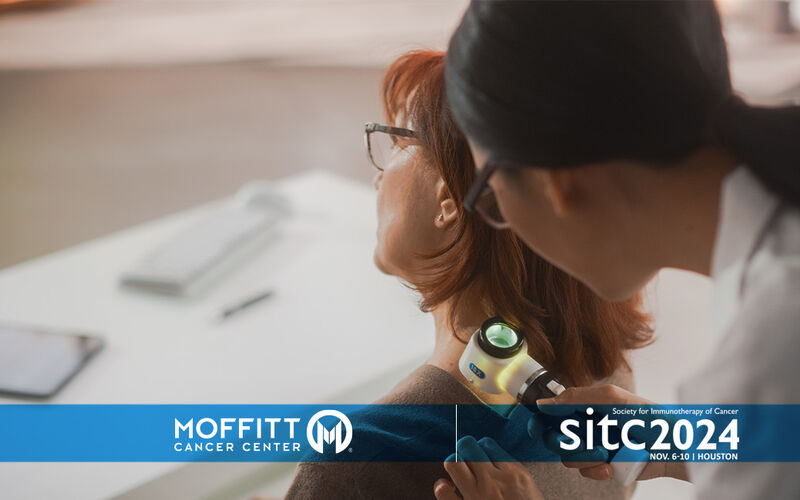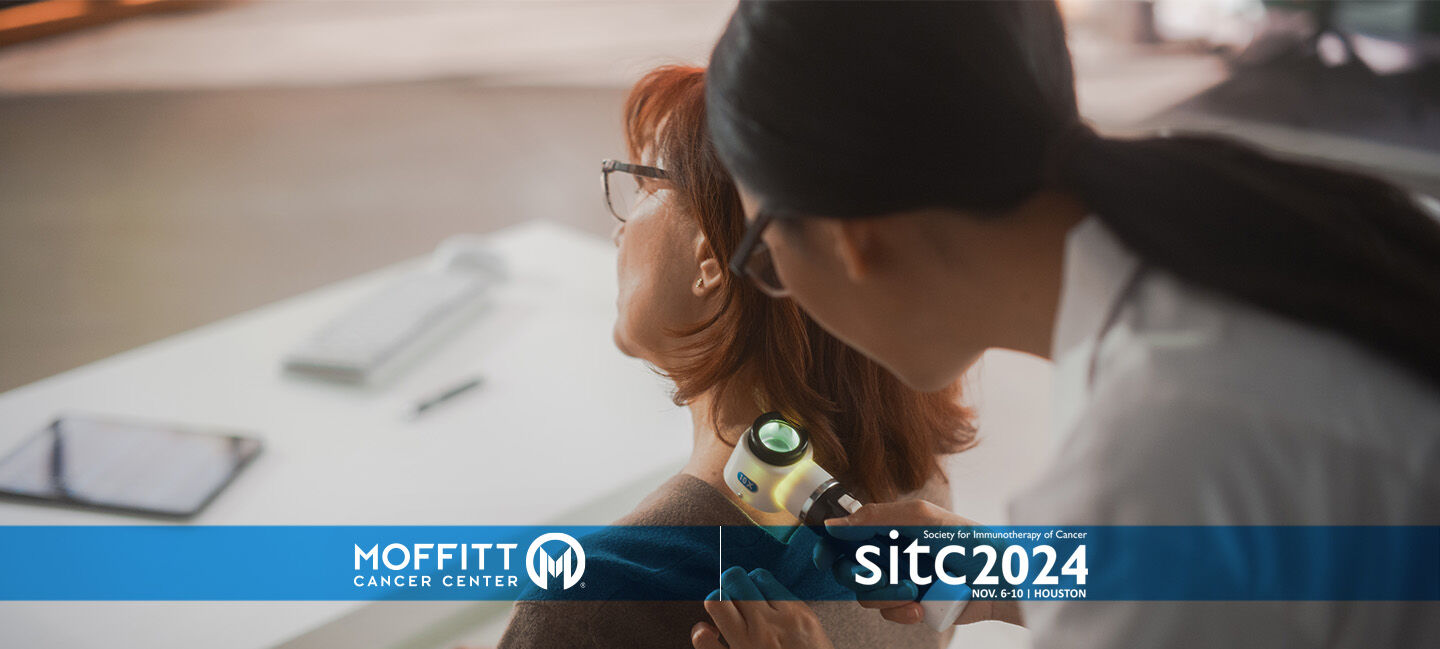Oral Drug Shows Potential for Advanced Melanoma Treatment
An oral histone deacetylase (HDAC) inhibitor called HBI-8000 paired with the immunotherapy drug nivolumab showed promising results for some advanced melanoma patients in early trials. The combination treatment is now part of a global phase 3 trial. The results of the trial will be shared by Nikhil Khushalani, MD, vice chair of the Cutaneous Oncology Department at Moffitt Cancer Center during the Society for Immunotherapy of Cancer annual meeting.
“The key question of this study asked is, ‘Does this addition of HBI-8000 add to the efficacy of nivolumab?’” Khushalani said. “In this study, the results are promising, and we have taken the next step to see if this can gain FDA approval.”

The clinical trial involved 39 patients with advanced melanoma, a majority of who were treated at Moffitt with the oral HDAC inhibitor HBI-8000 along with nivolumab. HBI-8000 has shown to affect the immune system, enhancing response to immunotherapy and improving response in preclinical studies. Khushalani added that the results show the combination therapy may be beneficial in treating cancers where nivolumab was already approved by increasing the efficacy of immunotherapy.
Advanced melanoma, or stage 4 melanoma, occurs when the disease has spread and cannot be surgically resected for a cure.
“The trial determined that 30 milligrams of this oral drug twice weekly was quite tolerable to take along with nivolumab,” Khushalani said. “It’s also important to recognize that this patient population was those with advanced melanoma who had not undergone any kind of immunotherapy prior to this trial.”
At that dose, HBI-8000 caused few side effects, mainly diarrhea, fatigue, nausea, abdominal pain and decrease in some blood counts. But these side effects overall were quite tolerable and managed with dose reduction of the drug in some cases.
“The overall response in the trial was 65%, so very impressive to our interpretation,” Khushalani said.
At #SITC24 Moffitt’s Nikhil Khushalani, MD (@DrKhushalani) Presents the final analysis of HBI-8000–302 a study that demonstrated the combination of HBI-8000 and nivolumab to have excellent efficacy and tolerability in treating anti-PD(L)1-naïve advanced melanoma. These results… pic.twitter.com/HRqnZdSkVF
— Moffitt Cancer Center (@MoffittNews) November 9, 2024
The encouraging results were the catalyst for the current global phase 3 trial, which could eventually lead to FDA approval of the HBI-8000 and nivolumab combination as a standard treatment option for patients with advanced melanoma. However, there is still a long way to go in the process.
“In simplest terms, we have to be cautiously optimistic,” Khushalani said. “We are using a standard of care treatment (nivolumab) and adding an oral medication that patients can take at home. It’s a simple schedule and we recognize that it’s well tolerated. If the results bear out in the phase 3 trial and show that this is superior to nivolumab alone, then that’s a large step to regulatory approval, and Moffitt Cancer Center again would have played an important role in advancing this development.”
The results of the global trial should be available late next year.




